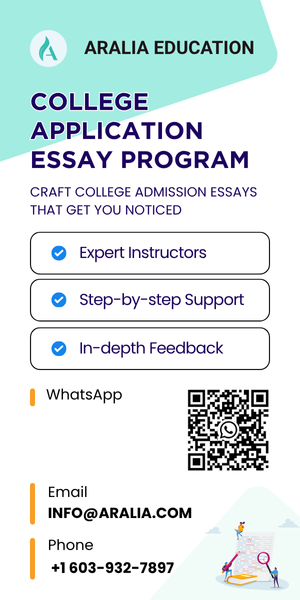85% of Aralia Students Place in Top Writing Competitions
1. What is the New York Times How To Informational Writing Contest?
The New York Times “How To” informational essay competition is a fun, prestigious writing contest for teenagers. Judges are from The Learning Network, a branch of The New York Times comprised of a community of former teachers. This popular writing contest attracts thousands of entries per year.
Simply put, write a max 400-word informational essay on how to do any task. Previous topics included tasks as technical as how to fix a brake light, to abstract topics like how to forgive someone to humorous fictional topics like how to talk to dogs, to (most likely) unachievable jobs like how to wash your hair in space. To ground the task in research and practice good journalism, students must find, interview, and quote one expert on the subject. Also, include an artist’s statement to supplement your submission.
The idea of writing short informational, how-to essays stemmed from a former New York Times Magazine column called Tip. Having run for 7 years, the weekly column gave instructional how-to’s on how to complete both serious and silly tasks.
2. When is the NYT Informational Writing Contest 2025?
Submission dates: February 12 to March 12, 2025 11:59pm Pacific time through this submission form.
Winners announced: Around May 2025.
3. NYT How To Informational Writing Contest Submission Rules
Let’s break down the submission rules of the New York Times “How To” informational essay contest, including the task (your essay topic), the interview, and the artist’s statement. First and foremost, the word limit is strictly 400 words.
The Task:
Your topic must be appropriate for a family newspaper, and your essay cannot include curse words. Write your instructions in the form of a letter to the reader. Address your reader directly as “you” and use active command verbs. The advice you give should be practical and backed by evidence. Explain where, when, and why someone would complete the task.
The Interview:
Interview an expert who isn’t related to you. Interviewing someone in your family will lead to a conflict of interest, and bias is journalism’s worst enemy. Quote this expert at least once in your essay. With such a short word limit (only 400 words), make sure you select quotes from the most substantial snippets of your interview.
Your interviewee doesn’t need to have a nationally recognized title, they just need to be someone who can provide insightful guidance (i.e. interviewing a nurse for how to comfort someone, or a child-care worker for how to say goodbye).
NYT Tip articles were heavily grounded in research and revolved around quotes from the interviewed expert—literally starting and beginning with a quote. However, the student contest submissions don’t have to be as hyper focused on making the interview the central aspect of the article. However, that still means the expert’s opinion should play an important part in shaping your message.
When you quote/reference your interviewee’s word, introduce their name, their profession, and age. You don’t need a Works Cited page for this contest. Example from Tip article “How to Recommend a Book”: “Recommending books you love is the hardest thing of all,” says Joyce Saricks, 72, who worked for nearly 30 years as a reference librarian in suburban Chicago.
The Artist’s Statement:
The artist’s statement is a brief, informal paragraph explaining your choice of the task and what you wanted to express with your essay. This will not be published with your How To informational essay, nor will it be used in the grading selection process. There’s no minimum or maximum word count for the artist’s statement, but don’t sell yourself short. Use this opportunity to draw a full, interesting, diverse picture of yourself as a person to The New York Time editors. These artist’s statements help the writing contest organization learn more about who you are as a student writer, and design more appealing future contests for young writers.
4. NYT How to Writing Contest Eligibility
To enter in The New York Times “How to” informational essay contest, students must be between the ages of 13 to 19, and currently attending middle or high school. Participants under the age of 18 must receive adult permission to enter. All submissions must be original writing produced by the author. Collaboration is not permitted in this contest. Submitted essays must be unpublished work, and work that has not been submitted to other contests. Each student is allowed one entry to this contest.
Unlock Your Writing Potential: Students in Our Writing Competition Preparation Class Are More Likely to Secure Awards
5. Why Should I Submit to the NYT Informational Writing Competition?
Writing for The New York Times has many benefits, including a chance to get published in the internationally acclaimed, prestigious news platform. Winning essays are published on The Learning Network, a highly regarded section of The New York Times focusing on student topics.
This is also an excellent opportunity for you to learn about and practice news literacy. Even if you write about a small, seemingly insignificant task, your writing has the ability to impact someone’s life with thoroughly researched facts and objective, informational writing. The How To informational essay contest, as well as other New York Times student contests, encourages students to understand the impact of journalism on our changing, interconnected world.
Practice professional networking and interviewing skills. Take this chance to reach out to new community members and interview someone you never imagined you’d talk to. “One goal of this contest is for you to talk to people you don’t know well and learn from them.”
6. How to Write a NYT How To Essay
Familiarize yourself with the writing style and read at least 3 other student essays as well as published stories from the Tip column. If you access the student essays and Tip articles for the above link, you won’t need to pay for a New York Times subscription to view the articles.
The more niche and specific the task, the better. Choose a small enough task that you can cover in as few as 400 words. Don’t pick a vague, complex task with too many steps. Moreover, your reader should be able to follow your informational essay, so each step should be clear-cut and meticulous. Avoid vague, general advice. Your writing should pinpoint exact actions for your readers to take.
Once you’ve decided on a task as your essay topic, conduct your interview before you write your piece. Don’t write your piece and find an interviewee simply to confirm your preexisting opinion. Instead, let the expert’s advice inspire, influence, deepen, and broaden your perspective.
Get creative with your interviewee. Don’t opt for the most easily accessible adult. Reach out to experts through cold emailing or tap into your connections. Ask your teachers about school alumni who may be interested in helping you or for advice on professional email writing.
Mind the 400-word limit. Triple check if the words you’re choosing are absolutely necessary. Rewrite and rewrite to find a more concise way to deliver the clearest instructions.
Your step-by-step guidance on the advice should be so specific and clear that your reader can follow your writing and successfully complete the task at hand. Think about how you can teach the reader something new. The best student essays and ones where the reader walks away with a light bulb moment or something intriguing to ponder over.
Don’t forget to include why this task needs to be performed. Your writing will be missing a vital piece if you eloquently detail the how-to without a reason why your reader would need to know this information in the first place.
Review the Contest Rubric to iterate on your drafts.
7. Prepare for NYT Writing Contests with Aralia Education
Consider learning from a writing coach. Aralia Education’s team of experienced teachers come from top-ranking U.S. private high schools. Their dedicated instruction and care for students has led Aralia students to consistently place in top competitions—our students have won over 100 writing competition awards in 2024 alone. Learn more about Aralia Education’s writing competition class!









